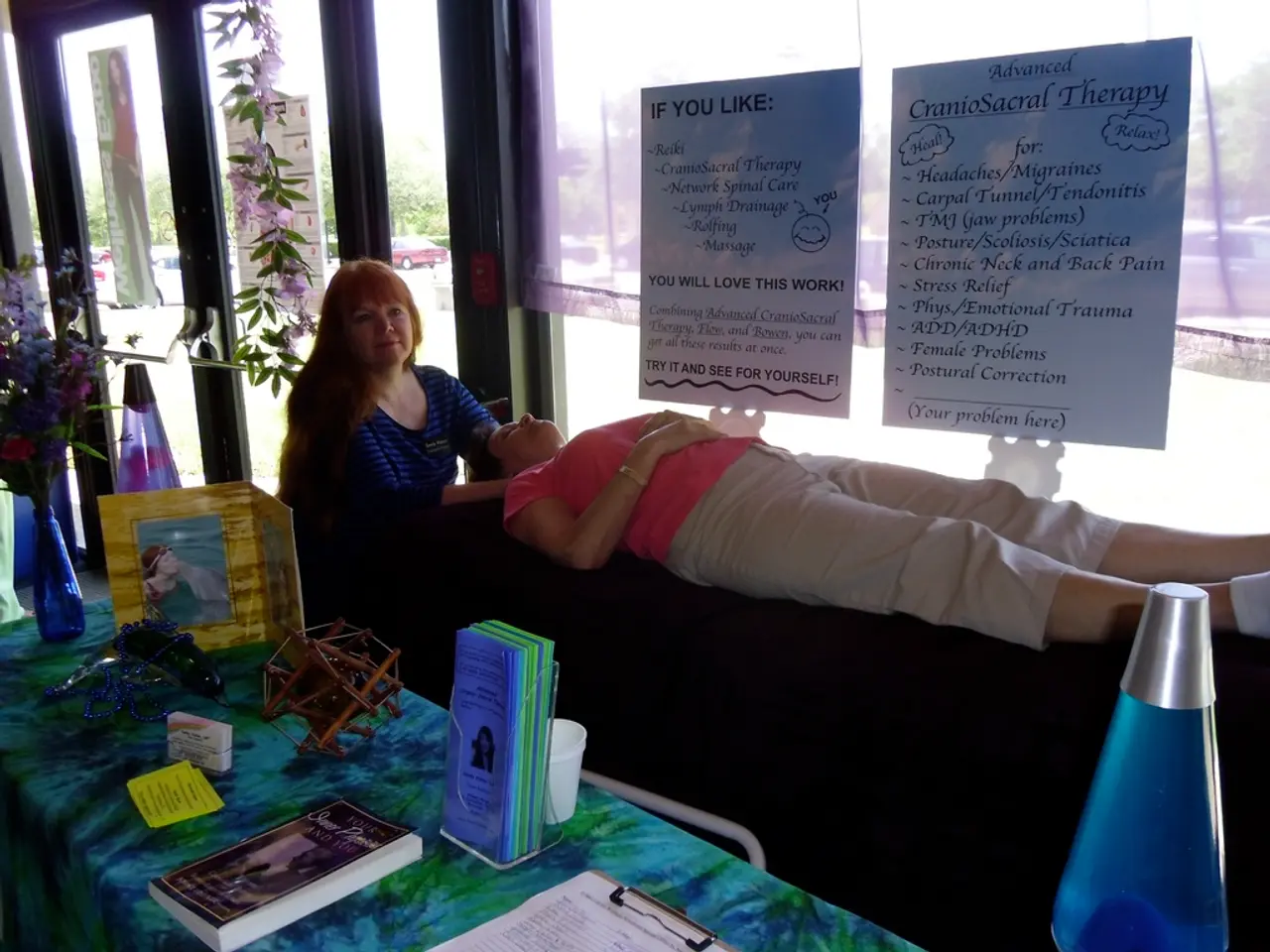Residential Treatment Center's Individualized Approach to Post-Traumatic Stress Disorder (PTSD) Therapy Aids in Long-Term Healing Process
Long-term residential treatment programs have emerged as a promising approach for individuals suffering from post-traumatic stress disorder (PTSD), particularly those with severe or complex cases. These treatment centres provide a controlled, supportive environment that fosters healing and recovery, offering benefits that traditional outpatient therapy may not always provide.
A key advantage of long-term residential treatment is its sustained symptom improvement. Follow-up studies indicate that participants in residential treatment show significant and lasting improvements in PTSD symptoms and overall quality of life, suggesting that long-term residential care supports enduring recovery better than some outpatient approaches [1].
The structured and supportive environment offered by residential programs is another significant benefit. These centres provide 24-hour care, separation from external stressors or unsupportive environments, and a home-like, comfortable living setting. This environment is conducive to healing and reduces distractions that might hinder recovery [2].
Residential centres usually offer integrated therapies, such as individual and group counseling, yoga, meditation, art and music therapy, and mindfulness, which address both psychological and physical aspects of PTSD. These holistic approaches can enhance traditional trauma-focused cognitive therapies like EMDR or CBT commonly used in outpatient settings [2][4].
Being part of a recovery community in residential treatment fosters peer support and learning from others’ experiences, which can be critical for motivation and long-term maintenance of gains post-discharge [2].
Research suggests that residential treatment participants tend to maintain improvements in PTSD symptoms over the long term, implying potentially higher or more durable success than outpatient therapy, which may suffer from less intensive and less immersive care [1]. Outpatient therapies, such as cognitive processing therapy (CPT) and prolonged exposure therapy, remain effective, especially for those with less severe symptoms or strong external support systems. However, for individuals with more severe or complex PTSD (often seen in veterans or those with co-occurring disorders), residential treatment may offer superior outcomes due to its intensity and comprehensive nature [3][4].
Maintenance therapy after initial trauma-focused outpatient treatment is important for relapse prevention but typically involves less frequent sessions and may not provide the immersive support available in residential programs [4].
In summary, long-term residential treatment tends to offer greater and more sustained benefits for those with severe or complex PTSD compared to traditional outpatient therapy, though outpatient care remains a valid and effective option for many patients depending on symptom severity and personal circumstances [1][2][4].
Residential treatment programs offer extensive opportunities for practicing new coping skills in a safe environment. Treatment teams in residential programs may consist of psychiatrists, psychologists, social workers, and other specialists who collaborate to address all aspects of a person's condition. Effective PTSD therapy often combines multiple therapeutic approaches, including cognitive behavioral therapy, exposure therapy, and EMDR. Group therapy sessions and peer interactions help people build connections with others who understand their experiences.
Residential programs teach people to recognize early warning signs of symptom return and provide concrete strategies for managing difficult periods. Many programs include family therapy components to repair and strengthen relationships. The residential treatment center in Laguna Niguel, California, is situated in a naturally calming environment with mild weather year-round.
Residential treatment centres for PTSD offer 24/7 support, unlike traditional outpatient therapy. Follow-up studies of residential treatment participants show sustained improvements in PTSD symptoms, quality of life, and functioning for years after treatment completion. The 988 Lifeline provides trained crisis counselors to help with mental health distress, including difficulties related to PTSD.
In a controlled environment, daily stressors are removed, aiding healing. Trauma-focused CBT is effective at reducing the symptoms of PTSD and is often used in personalized PTSD treatment. Residential settings allow for constant monitoring of progress and symptoms, enabling quick adjustments to treatment plans if needed. PTSD treatment in residential settings often includes evidence-based therapies such as trauma-focused cognitive behavioral therapy, EMDR (Eye Movement Desensitization and Reprocessing), and group therapy sessions.
Science indicates that long-term residential treatment, with its holistic therapies and supportive environment, can offer significant and lasting improvements in mental health for individuals with severe or complex PTSD, surpassing the benefits of traditional health-and-wellness outpatient approaches [1][2][4]. This immersive care, which includes treatments like mindfulness and art therapy, can enhance the effects of traditional mental-health therapies-and-treatments like EMDR or CBT [2][4].




